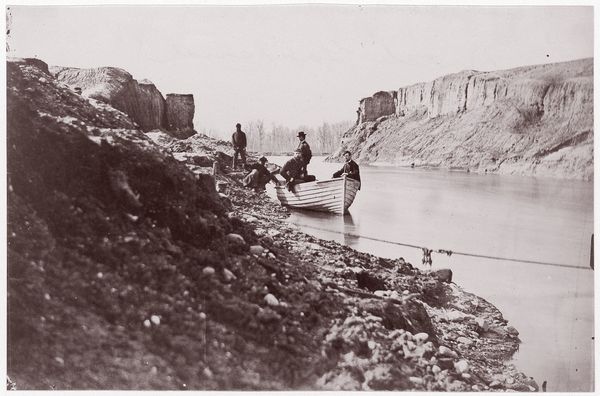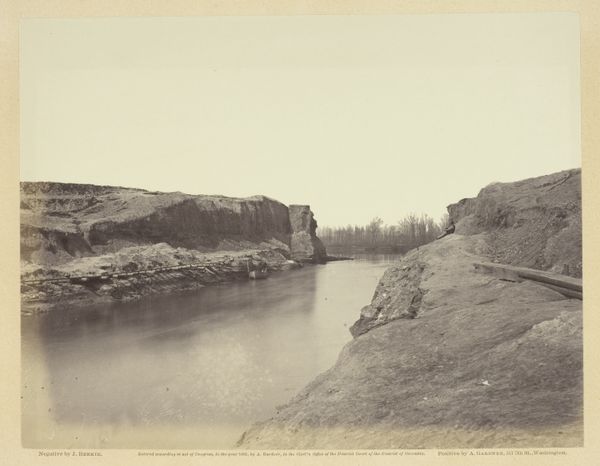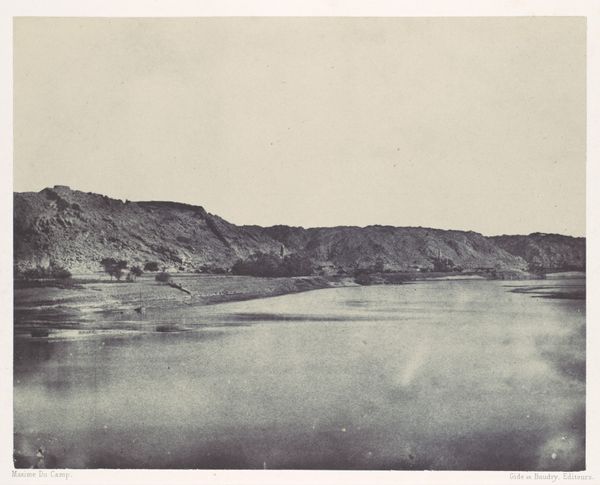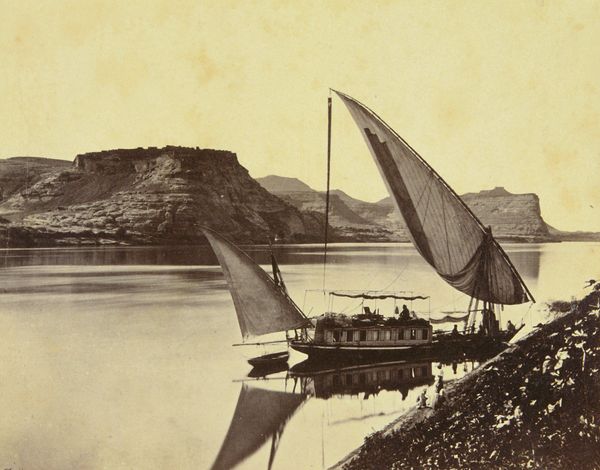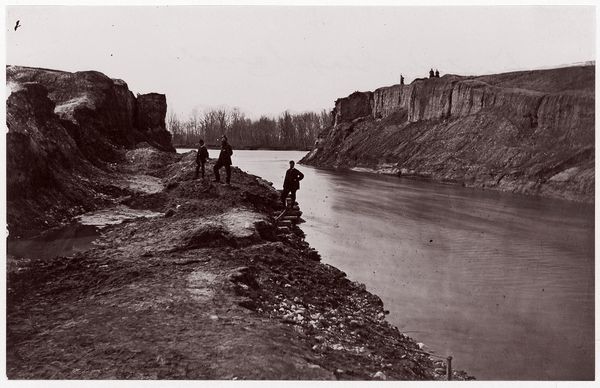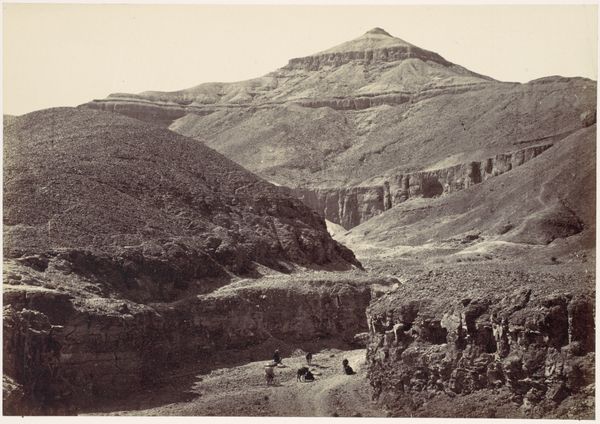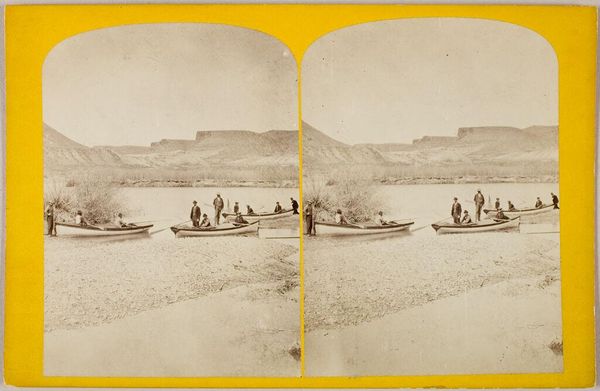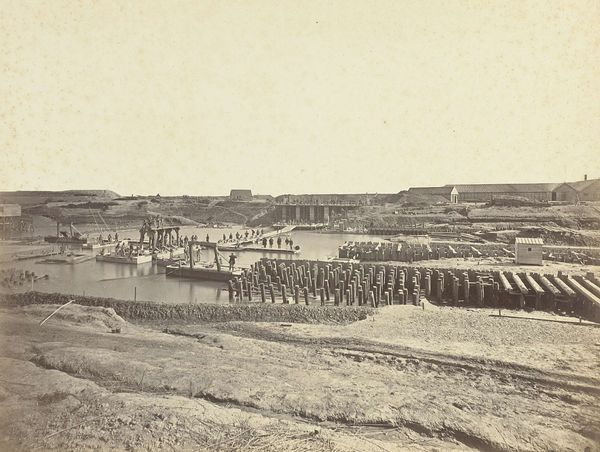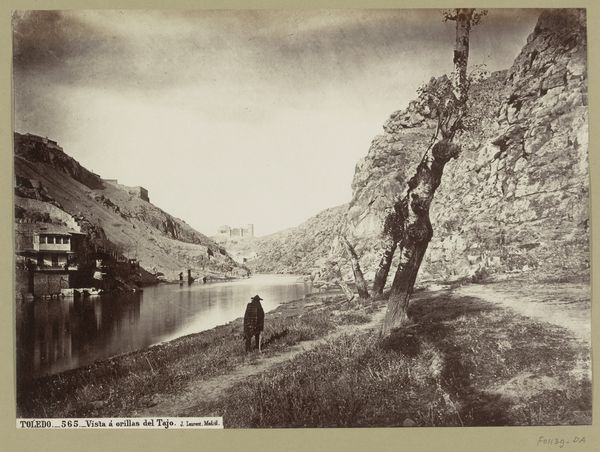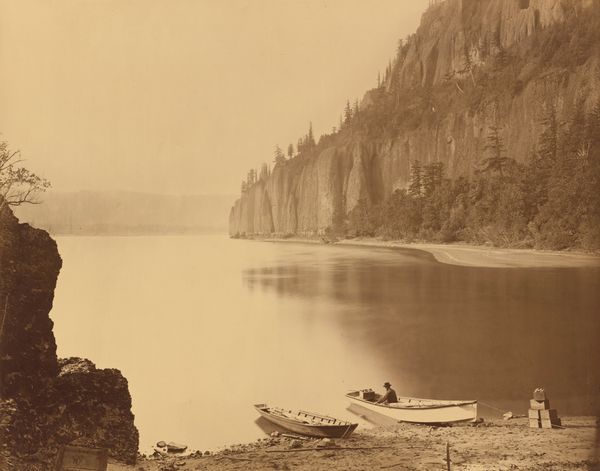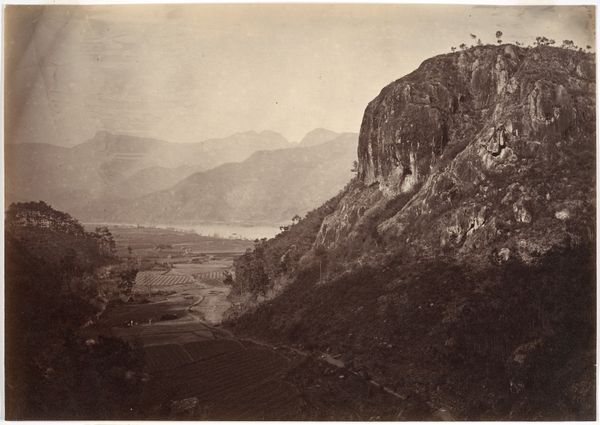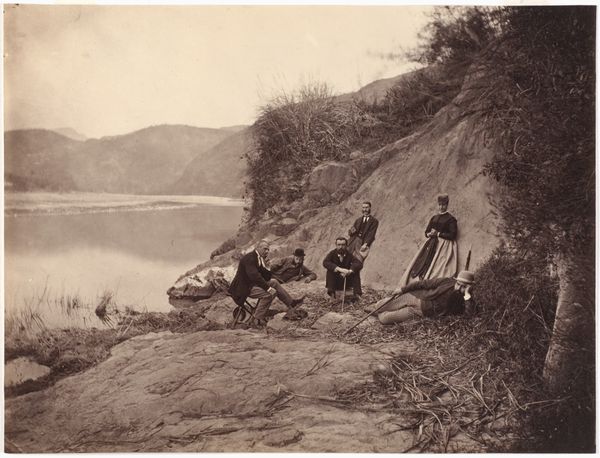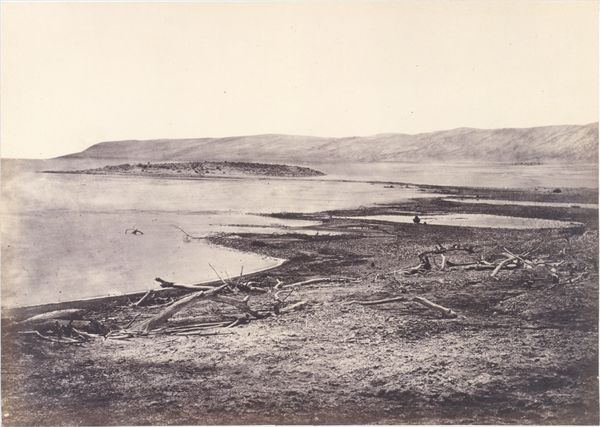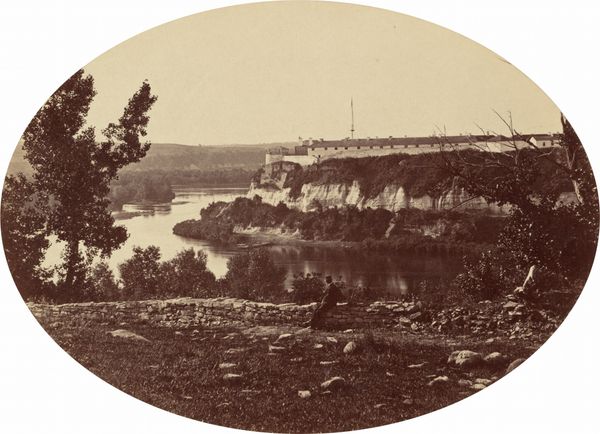
photography, gelatin-silver-print
#
landscape
#
photography
#
gelatin-silver-print
#
united-states
#
watercolor
#
realism
Dimensions: 6 1/16 x 8 1/4 in. (15.4 x 20.96 cm) (image)10 x 11 13/16 in. (25.4 x 30 cm) (mount)
Copyright: Public Domain
This photograph of Fort Snelling was taken by Benjamin Franklin Upton, using the wet collodion process. This cutting-edge technology involved coating a glass plate with chemicals, exposing it in the camera while still wet, and then developing it immediately. The process itself is crucial to understanding the image. Each plate had to be prepared, exposed, and developed quickly, a real constraint considering the time and resources needed to transport all the equipment. This favored static subjects, yet here, Upton has captured figures in motion. Consider too the social context. Photography democratized image-making, yet remained labor-intensive. The tonality of the print, with its soft focus and sepia tones, evokes a nostalgic feel for the receding frontier, even as the image's very creation depended on industry. Fort Snelling itself represents contested territory, a site of military presence on Indigenous land. Thinking about the photograph in terms of its making, and its historical context, invites us to reflect on the complex relationship between progress, place, and representation.
Comments
No comments
Be the first to comment and join the conversation on the ultimate creative platform.
